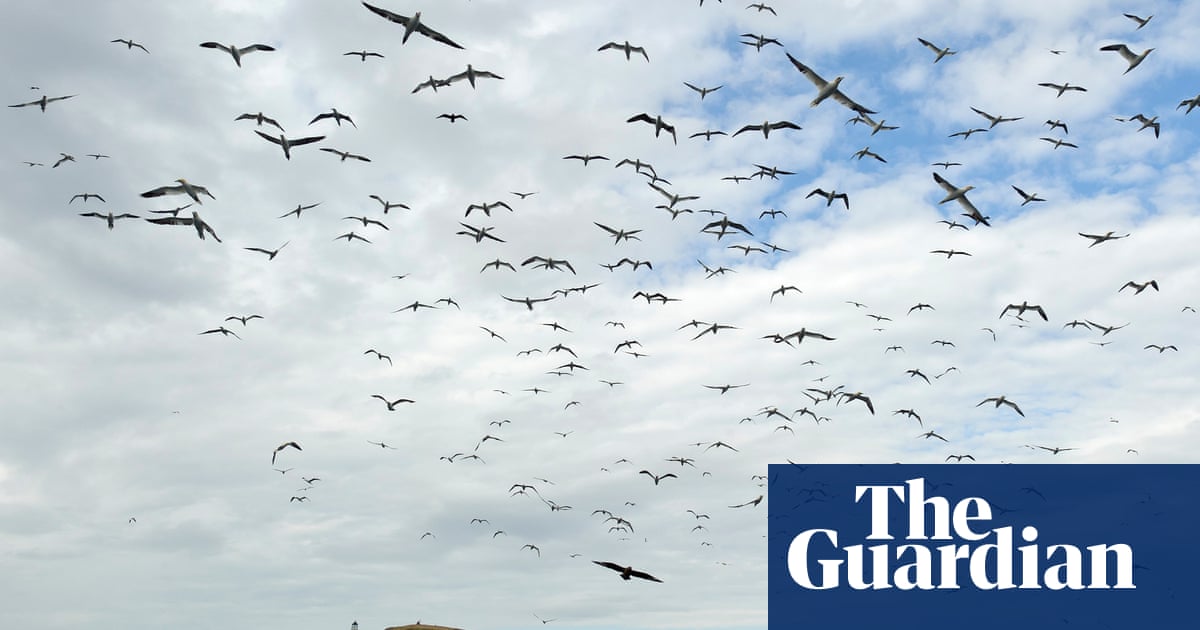Often thought of as the northernmost point of the British Isles, the Scottish island Muckle Flugga lies on the outer reaches of the Shetland archipelago. Norse legend has it that this craggy and almost uninhabitable place was created by two warring giants, obsessed with the same mermaid. While throwing boulders at each other, one of the rivalrous giants’ missiles accidentally plopped into the sea: and so the island was born.
A version of this mythic tussle is central to Michael Pedersen’s debut novel. When the narrative opens, delivered in a lively present tense sprinkled with Scots, The Father and his 19-year-old son Ouse are the only residents on the island. The Father mans Muckle’s lighthouse, and is as volatile as the waves he illuminates. A gossip from a neighbouring island describes him as irascible, with “a viper in his throat and … a broken soldier’s thirst for whisky”. Ouse, meanwhile, is “a queer sort” “who sounds as if he’s been sooking helium out of party balloons … always staring off into the distance”. He’s famed in the area for being an “artiste”, a dab hand at needlework with a reputation for producing beautiful handmade textiles.
What unites father and son is that they take their stewardship of the island seriously. They are devoted to the extraordinarily various wildlife – puffins, gannets, sea otters, peacock butterflies – and hypnotised by the thrillingly chimeric weather. Unspoken grief for The Mother, who drowned two years before the story begins, also binds the two together. The Father assumes his only heir will eventually take over the family business.
Enter Firth, a foppish twentysomething failed writer from Edinburgh with griefs of his own. Racked with self-loathing, he has vowed to kill himself after fulfilling a promise: to visit the enchanted isle of Muckle Flugga, much loved by his late grandfather. Almost as soon as he arrives, Firth is entranced by Ouse’s mercurial demeanour, as he parses landscapes and seascapes alien to Firth’s urban eyes. Firth is struck, too, by the blazing potential of Ouse’s artistic talent. He wants to whisk him away to the mainland and make him a star. Thus begins the tug of war for Ouse’s allegiance: The Father, familiarity and tradition yank one way, but Firth, possibility and the seductive unknown pull just as hard.
This perhaps presents the plot as neat and fairly recognisable: a narrative of masculine archetypes vying for one-upmanship, with notes of The Tempest. But Pedersen introduces wild cards – spooky visions of religious zealots, a pumpkin-punching contest – that emphasise the strangeness of this remote place, so far away from the norms of the mainland that anything might be possible. Significant among these zany additions is the ghost of Scottish writer Robert Louis Stevenson. Stevenson – who came from a family of lighthouse engineers – acts as imaginary friend and confidant to Ouse. He counsels Ouse for his maternal loss and guides him through the decision about where his future might lie. Pedersen threads the apparition’s dialogue with aphorisms from the real Stevenson’s work and correspondence.
The novel’s most memorable feature, and perhaps most potentially divisive one, is its loudness. The characterisation of the villainous but vulnerable father, of the hapless city type and of the ethereal innocent is bold and broad – sometimes cartoonish. The setting, rich with images of the aurora borealis and storm-lashed shores, is almost psychedelic. But the narrative voice is loudest of all: constantly baroque, with the linguistic and emotional dials turned up high. Firth receives an unexpected letter, and the missive is “a Pandora’s box, a bete noire, a curse, a lifeline, an arch nemesis, a fairy godmother … a gift from the gods”. A flurry of snow after an exchange between the protagonists is “a divine offering, the impetus for reconciliation under the auspices of a natural phenomenon”.Pedersen is known as a poet, and his wonder at the magic of language is evident in this self-consciously high style. In places, the linguistic busyness occludes the plot’s more interesting undertones: the queer desire between Ouse and Firth, considerations about our place in and responsibilities to the natural world.
But there is, ultimately, something immensely charming about this novel. It is weird, rambunctious and repeatedly demands the reader surrender to its particular wildness. Its generosity of spirit, its unrestrained warmth and humour – the brilliantly kinetic description of a surprise ceilidh is a case in point – steadily worked away at my scepticism. Like Ouse’s flamboyant designs, inspired by the spectacular landscape around him, it is “garishly alive”.
Muckle Flugga by Michael Pedersen is published by Faber (£16.99). To support the Guardian, order your copy atguardianbookshop.com. Delivery charges may apply.
